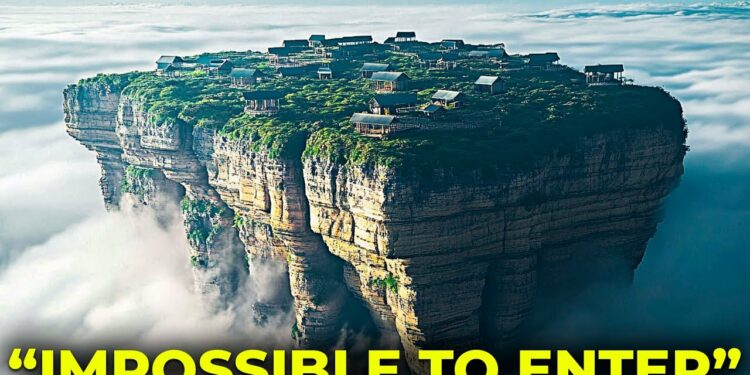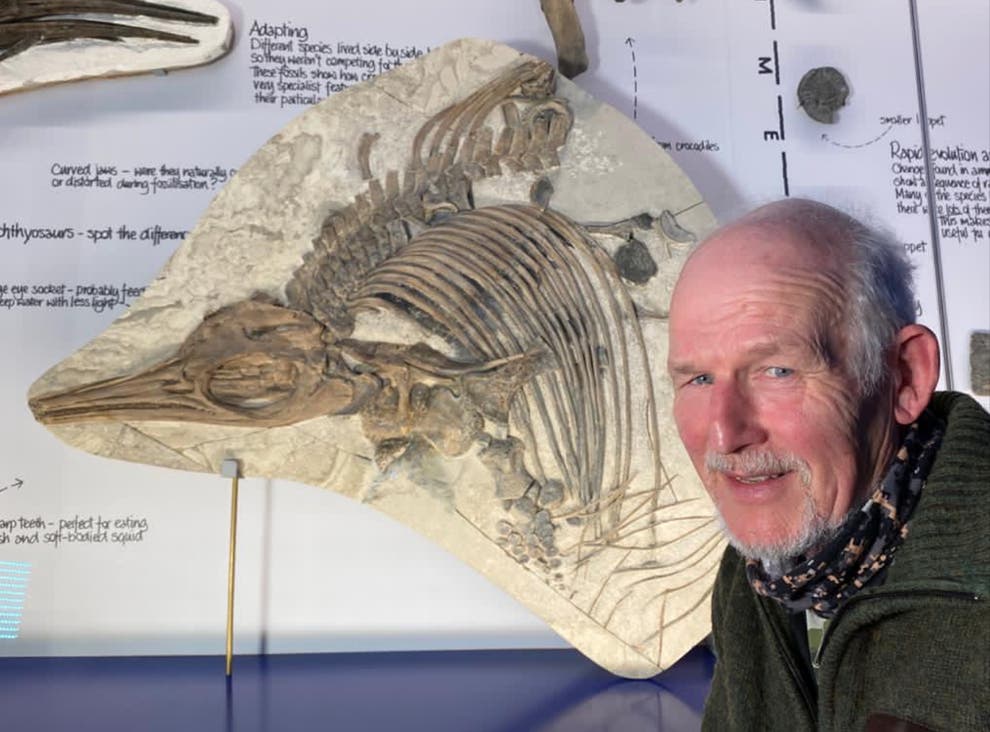Despite the world feeling mapped and measured, Earth still conceals remote, alien, and nearly forgotten places that guard their secrets fiercely. These locations, some of the most inaccessible on the planet, challenge human exploration and resilience. Join us as we uncover the top 20 most isolated places on Earth, where turning back is rarely an option.
20. Devon Island, Canada
Devon Island, the world’s largest uninhabited island, spans 21,000 square miles in the Canadian Arctic. Its barren, Mars-like landscape, marked by the 14-mile-wide Haughton Impact Crater from a 39-million-year-old meteorite strike, endures temperatures as low as -58°F. NASA has used this harsh terrain since 1997 as a testing ground for Mars missions, trialing rovers and spacesuits to prepare for future space exploration. The island’s extreme conditions make it a proving ground for human adaptability and technological innovation.
19. North Sentinel Island, India
North Sentinel Island, a 31-square-mile outpost in the Bay of Bengal, is home to the Sentinelese, one of the world’s last uncontacted tribes. Estimated at 50–400 individuals, the Sentinelese fiercely reject outsiders, preserving their ancient way of life for over 60,000 years. The Indian government bans visitors to protect the tribe, whose isolation was underscored in 2018 by the tragic death of missionary John Allen Chau, killed during an unauthorized contact attempt.
18. Surtsey Island, Iceland
Born from a volcanic eruption in 1963 south of Iceland, Surtsey Island (0.5 square miles) is a pristine natural laboratory. Scientists monitor its evolving ecosystem, where wind- and wave-carried seeds have fostered mosses, grasses, and even an accidental tomato plant. Seabirds like puffins and gulls nest on its cliffs. Declared a nature reserve, Surtsey is off-limits except to researchers, offering a rare glimpse into the genesis of life on new land.
17. Danakil Depression, Ethiopia
The Danakil Depression in Ethiopia’s northeast, one of the hottest places on Earth with temperatures exceeding 120°F, lies 410 feet below sea level. Its salt flats, sulfur springs, and lava lakes create a surreal, sci-fi landscape. Despite harsh conditions, extremophile microorganisms thrive in its hot springs, offering clues to life’s origins and potential extraterrestrial existence. Salt miners brave the heat to extract minerals from this otherworldly terrain.
16. Pitcairn Islands, South Pacific
The Pitcairn Islands, a British overseas territory, house just 50 people, descendants of the 1790 HMS Bounty mutineers. This 1.75-square-mile volcanic outcrop, steeped in maritime lore, faced scandal in 2004 with convictions for widespread abuse. The islands’ isolation, 3,400 miles from any continent, preserves a unique community reliant on traditional practices amidst a history of rebellion and resilience.
15. Snake Island, Brazil
Ilha da Queimada Grande, or Snake Island, a 106-acre island off São Paulo, Brazil, is home to 2,000–4,000 golden lancehead pit vipers, among the world’s most venomous snakes. Evolving in isolation, their potent venom can kill in under an hour. The Brazilian Navy bans visitors, allowing only researchers to study these deadly serpents, whose presence fuels local folklore of gruesome tales.
14. Sarisariñama Mountain, Venezuela
Sarisariñama Mountain in southern Venezuela, sacred to the Ye’kuana people, hides massive sinkholes (simas) over 1,000 feet deep and wide. Discovered in the 1970s, these sinkholes host unique ecosystems with distinct flora and fauna, thriving in cool, moist microclimates. The mountain’s sheer cliffs and dense jungle make it a challenging, mystical destination steeped in spiritual significance.
13. Heard and McDonald Islands, Indian Ocean
Heard and McDonald Islands, Australian territories in the Southern Indian Ocean, are uninhabited volcanic outposts. Heard Island’s Mawson Peak, a 9,006-foot active volcano, towers over glaciers and tundra. Seals, penguins, and seabirds thrive despite relentless winds and crashing waves. These untouched landscapes, devoid of human settlement, showcase nature’s raw power and resilience.
12. Vale do Javari, Amazon Rainforest
The Javari Valley, a 33,000-square-mile Amazonian sanctuary, shelters uncontacted tribes who fiercely defend their traditional lifestyle. Skilled hunters and navigators, they face threats from illegal loggers, miners, and poachers encroaching on their lands. Violent clashes highlight their determination to protect their homeland, a pristine wilderness untouched by modern civilization.
11. Mariana Trench, Pacific Ocean
The Mariana Trench, plunging over 36,000 feet, is Earth’s deepest point, where pressure could crush a human instantly. Yet, life thrives: xenophyophores, Mariana snailfish, and microbes endure in scalding hydrothermal vents. In 2012, James Cameron’s solo dive revealed this alien realm, showcasing a frontier where specialized equipment and courage unlock Earth’s hidden depths.
10. Palmerston Island, South Pacific Ocean
Palmerston Island, a Cook Islands coral atoll, houses 58 descendants of Englishman William Marsters and his three Polynesian wives from 1863. With no cars or shops, residents rely on fishing and crops, communicating via a single satellite phone. Supply ships visit twice yearly, sustaining this genetically homogeneous community living a simple, isolated life.
9. Adak Island, Alaska
Adak Island, in Alaska’s Aleutian chain, is the westernmost U.S. city, nicknamed the “Birthplace of the Winds.” Once a bustling WWII and Cold War naval base with 6,000 residents, it’s now a ghost town of about 100 people. Gale-force winds, fog, and abandoned buildings define this treeless, wind-swept outpost where survival battles the elements.
8. Villa Las Estrellas, Antarctica
Villa Las Estrellas on King George Island, Antarctica, is one of two civilian settlements enduring -128°F temperatures and 200 mph winds. Founded in 1984 by Chile, it houses scientists and families in colorful buildings designed for extreme conditions. Residents face months of darkness and isolation, driven by scientific curiosity in this frozen, unforgiving world.
7. Cape York Peninsula, Australia
Cape York, Australia’s northernmost tip, is a rugged frontier of savannah, rainforest, and mangroves. Sacred to the Gunggandji people, it hosts over 3,000 plant species, including rare golden orchids, and animals like tree kangaroos and saltwater crocodiles. Its proximity to the Great Barrier Reef and untouched landscapes make it a biodiversity hotspot.
6. Tristan da Cunha, South Atlantic Ocean
Tristan da Cunha, the world’s most remote inhabited island, lies 1,700 miles from any continent. Its 250 residents endure gale-force winds and a week-long boat journey from South Africa. Home to endemic species like the Tristan Albatross and rock lobster, this volcanic island embodies nature’s dominance and stunning isolation.
5. Medog County, Tibet
Medog County, known as the “Hidden Lotus,” is a sacred Tibetan valley of lush forests and biodiversity, accessible only by treacherous mountain passes until 2013. Over 2,000 plant species and rare birds like the Temminck’s tragopan thrive here. Revered as a spiritual refuge, Medog blends natural beauty with deep Buddhist significance.
4. Cape Melville, Australia
Cape Melville, on Australia’s northeastern coast, is a hidden peninsula of granite boulders and rainforest near the Great Barrier Reef. Recent expeditions uncovered new species, including the leaf-tailed gecko, shade skink, and blotched boulder frog, adapted to its rugged terrain. This “lost world” remains a scientific treasure trove.
3. Hang Son Doong Cave, Vietnam
Hang Son Doong, the world’s largest cave in Vietnam’s Phong Nha-Ke Bang National Park, spans 3 miles with caverns tall enough for skyscrapers. Discovered in 1991, its underground rivers, jungles, and unique species thrive in a self-contained ecosystem. Limited to a few hundred visitors annually, it demands treacherous treks to explore its wonders.
2. Mount Namuli, Mozambique
Mount Namuli, a 7,940-foot granite peak in northern Mozambique, supports diverse habitats from rainforests to grasslands. Home to endemic species like the Namuli apalis, its misty slopes remained unexplored until recent expeditions revealed its biodiversity. This sentinel of natural beauty stands as a scientific and ecological marvel.
1. La Rinconada, Peru
La Rinconada, at 16,700 feet in the Peruvian Andes, is the world’s highest permanent settlement. Its 50,000 residents endure thin air, contaminated water, and rampant disease while mining gold in dangerous conditions. Driven by the promise of wealth, this ramshackle town embodies survival against extreme odds in a harsh, unforgiving environment.























